
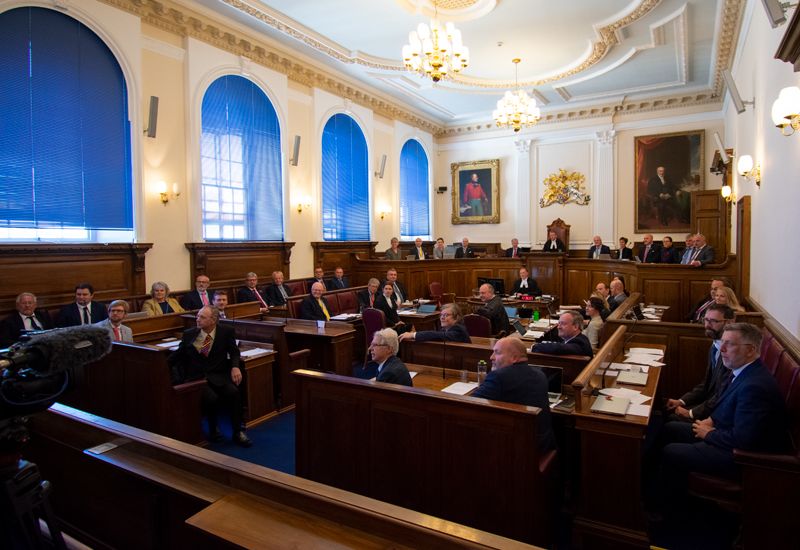

On 7 October 2020, the island made history with its first fully island-wide general election. 38 deputies took their places at the wheel of government, and one year on Express looks back at what they’ve done.
A new political term couldn’t have come at a more testing time for the island, as the Bailiwick remained in the grip of covid and the threat of lockdown continued to loom over islanders.
Deputy St Pier also lost out on the presidency for the States Trading and Supervisory Board, which went to Deputy Peter Roffey, before being rejected for a role on the Scrutiny Committee in a series of elections that marked a significant shift in the power balance from the previous term.
Deputy Lindsay de Sausmarez ascended to the presidency of the Environment & Infrastructure Committee, Deputy Rob Prow did likewise for Home Affairs, and Deputy Neil Inder beat out competition from his former Committee President Charles Parkinson for the top job at Economic Development.
Returning Deputy Yvonne Burford was elected as President of the Scrutiny Management Committee and Deputy Carl Meerveld took his place at the helm of the States’ Assembly and Constitution Committee.
Deputy Andrea Dudley-Owen took on the hot potato presidency of Education, Sport and Culture, leading the Committee as it passed one of the largest policy letters of the term - the reorganisation of Guernsey's school system following the abolition of selection, which has hung over the States for successive terms.
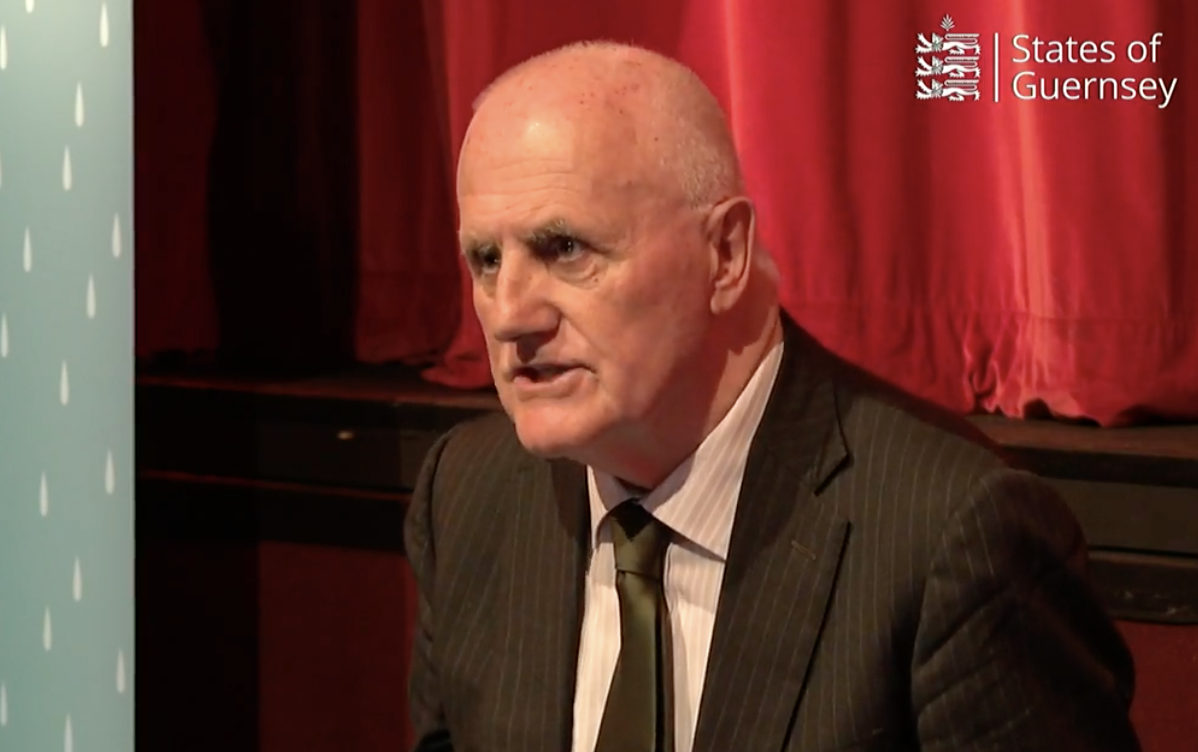
Pictured: Deputy Ferbrache led the Bailiwick through the second lockdown and could often be seen at media briefings updating islanders on the latest decisions made by the CCA.
One of the first big ticket decisions was the unanimous approval of the UK’s post-Brexit agreement in December last year.
Despite some members of the Assembly lamenting being forced to decide a ‘momentous’ decision at just days' notice over Christmas, it was given the full support of the States.
Fast forward a couple of months and the States were being asked to vote on dormant bank accounts and the transfer of £3m of untouched funds into a charitable pot.
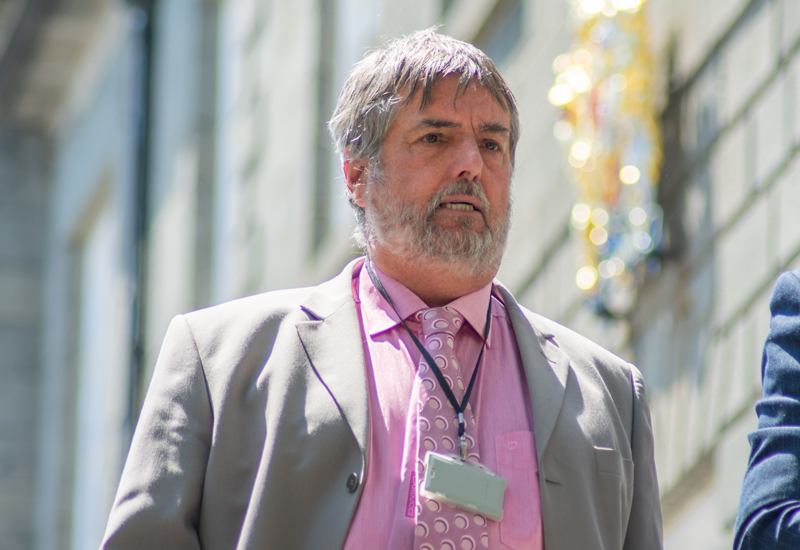
Pictured: "I am convinced that our much bigger cousins on the other side of the English Channel have made a tactical mistake of historic proportions, and that in 20 years' time they will look back on Brexit as an extraordinary act of self harm," said Deputy Roffey during debate on Brexit.
All of this was going on to the backdrop of a pandemic and the Civil Contingencies Authority continued to act as an emergency body, implementing rules and regulations that impacted on people’s daily lives.
The CCA is comprised of the presidents of P&R, E&I, HSC, and HA, while heeding advice from Public Health, its Director Dr Nicola Brink, and a small team of senior public servants.
A sudden lockdown was brought in towards the end of January and would ultimately last two months following community seeding of what later turned out to be the more transmissible Kent Variant of Covid-19.
Since then, the CCA’s overarching, almost executive powers have continued to be voted in unanimously by the States’ Assembly. It has been responsible for keeping covid levels comparatively low in the community, although border controls and the speed of unlocking those restrictions have divided public opinion.
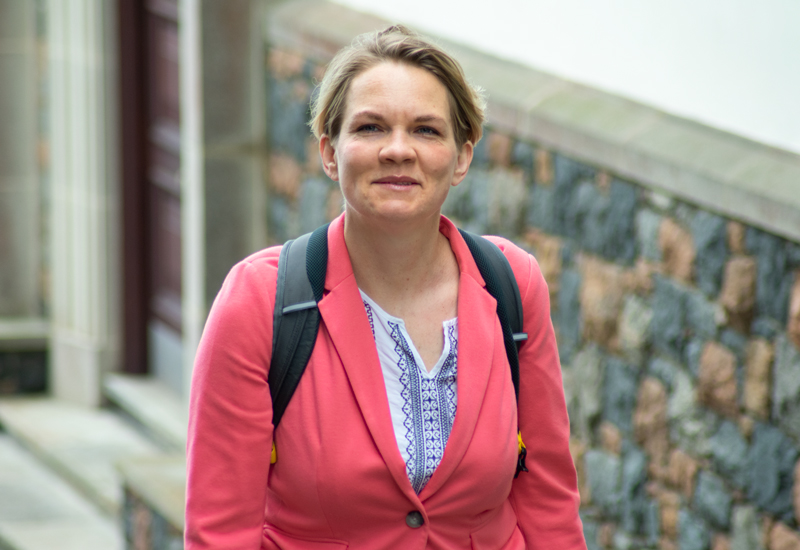
Pictured: New addition to the Assembly, Deputy Sasha Kazantseva-Miller, has raised concerns about the continuing reliance on the CCA and the decisions it makes: “We’re really starting to have to look at this from the proportionality of human rights, from the proportionality of the cost of families not being able to reunite with families elsewhere, and the cost to the economy of people not being able to travel here for work."
During the pandemic, online activity has become ever-present, with remote working and Teams meetings among the many features that are now integrated into many people's lives.
For the newly-elected Deputy Chris Le Tissier, his offensive and discriminatory tweets under a pseudonym proved his undoing. Express unearthed evidence that the now-suspended States member was in fact 'The Pirate', leading to admissions of guilt and a lengthy code of conduct process that eventually saw him sidelined from the States without pay for 12 months.
In June, P&R published its biggest piece of work to date, the Government Work Plan. In it, P&R laid out its aspirations for the political term, tackling the effects of both Covid and Brexit.
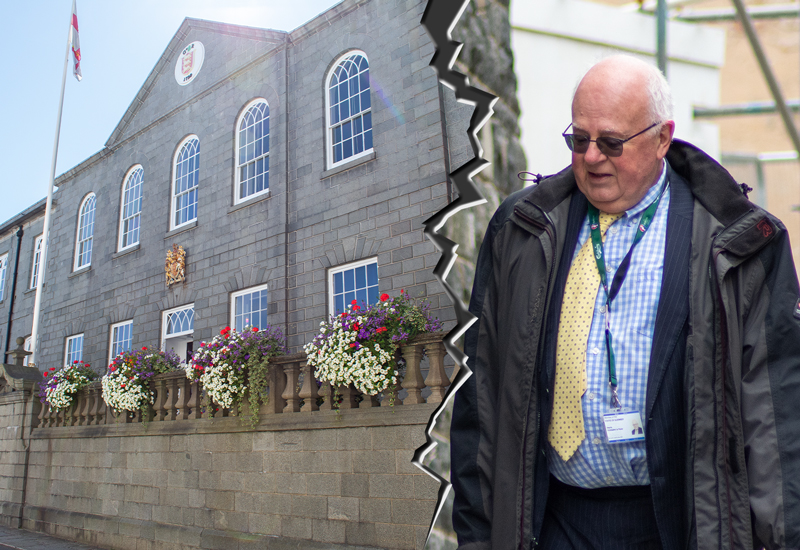
Pictured: 38 became 37 when Deputy Le Tissier was suspended from all States business for 12 months.
The GWP outlined which capital projects needed to be funded, and which it said could be put on the back burner.
The next tectonic decision was the conclusion of the education debate. Six years of various proposed three-school and two-school futures, spawned from the loss of the 11+ in 2016.
The £54m proposals were voted through by 22 to 17, despite strong resistance from a surveyed 87% of teachers who did not support them and the absence of anything resembling the comprehensive 'review' lobbied for prior to the 2020 Election.
It was also the first major example of P&R's new powers in operation, with no requirement for the proposals to return to the States again for final sign-off.
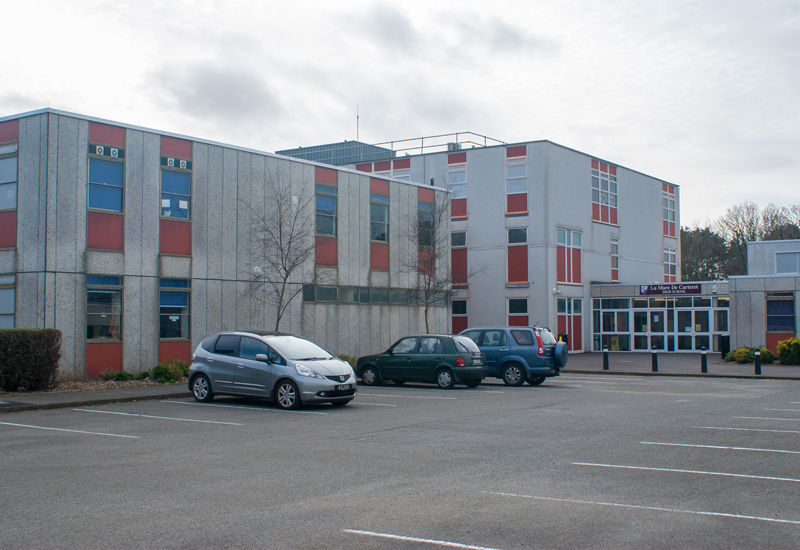
Pictured: La Mare de Carteret Secondary will close in 2024 after years of uncertainty about the school's future.
This summer saw further debate and campaigning around already-agreed legislative changes around abortion. In the end, Deputies Carl Meerveld and Liam McKenna failed in their attempt to delay the modernisation of Guernsey's Abortion Law.
More recently, the Assembly agreed to continue quarrying on-island. Ronez is preparing to now move its stone plant, and subject to planning approval, it’ll be moving its base of operations to the Chouet Headland.
It’s in response to the inevitable depletion of Les Vardes Quarry forcing the States’ to either import or quarry on-island.
27 votes to nine saw E&I’s policy letter voted through. Despite its negative impact on our environment, it was argued that the environmental impacts could be mitigated more successfully if done on-island.
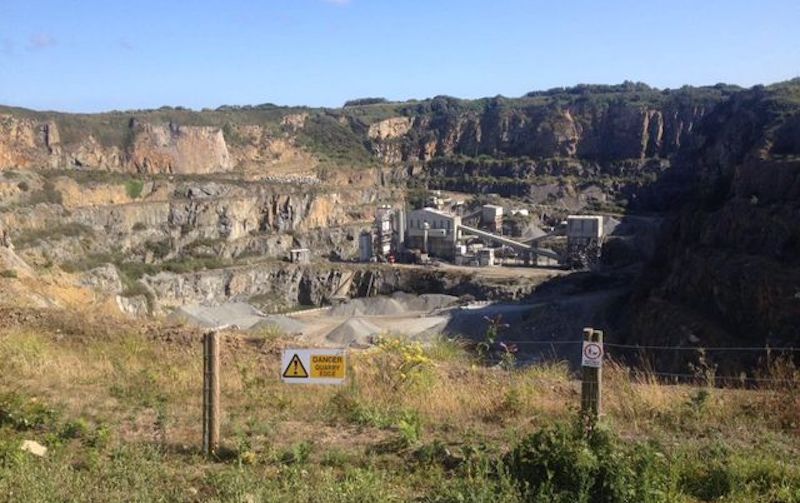
Pictured: A decision on future aggregate supply was essential as Les Vardes has only 16 month' worth of granite left before it needs to relocate its stone plant to access final reserves.
So where does that leave us?
Next month will see Deputy Inder bring his Committee’s policy letter on digital infrastructure to the Assembly. It proposes a major investment in a new fibre network for every household in the island, according to those behind £37.5m plans to make Guernsey a "digital leader" by upping connectivity and solving problems with network unreliability.
In another major vote later this year, the STSB and P&R will be asking the States to approve the recapitalisation of Aurigny to the sum of £46.8m, as the airline's new management aims to move on from the pandemic and make the habitually loss-making company profitable.
It is not the first time that has happened this term - the Assembly overrun two scheduled meetings for the education debate and ended up having to defer it from July until after the summer holidays.
The wheels of change keep turning and the next debate on Wednesday 13 October will either set out a direction for future taxation following a tax review that some feel has failed to grapple with all the relevant issues.
Comments
Comments on this story express the views of the commentator only, not Bailiwick Publishing. We are unable to guarantee the accuracy of any of those comments.